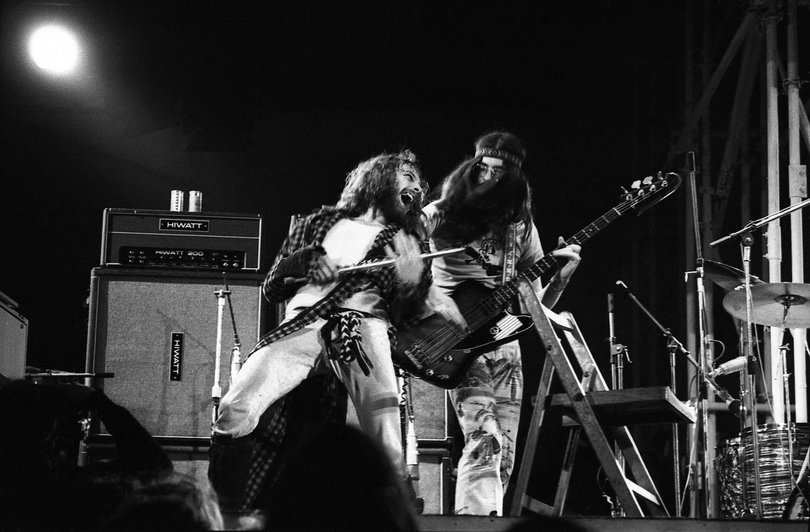Across the years, the British progressive-rock icons Jethro Tull achieved wonders through mixing folk, rock, jazz fusion, classical, blues and world music. Selling over 60 million albums worldwide – largely thanks to classic records such as Aqualung and Thick As A Brick – the group also became a formidable live unit, with their Pied Piper-esque frontman, Ian Anderson, tearing up the stage with flamboyant flute solos. Master storytellers who could regale fans with Dickensian depictions of English life, and consummate musicians who made a sport of toying with unusual time signatures, Jethro Tull mined English mythology to unearth nuggets of hard rock-gold. Always surprising us with their eccentric vision, the best Jethro Tull songs continue to define their era.
Listen to the best of Jethro Tull here, and check out our best Jethro Tull songs, below.
10: A Song For Jeffrey (from ‘This Was’, 1968)
A rollicking collision of Mick Abraham’s stonking guitar riffs and Ian Anderson’s bullhorn vocals, the psychedelic blues of A Song For Jeffrey was the lead single from the band’s debut album, This Was. Written with friend and future Tull bassist Jeffrey Hammond in mind, the song is sung from the point of view of an aimless soul unsure of his destiny (“I tell myself tomorrow brings me/Things I would not dream today”).
Though A Song For Jeffrey failed to chart, Jethro Tull were invited to play it during The Rolling Stones’ 1968 concert film, The Rolling Stones Rock And Roll Circus. By this point, however, Mick Abrahams had quit the group and was temporarily replaced by Tony Iommi (otherwise known as the man who would help invent heavy metal as lead guitarist for Black Sabbath).




